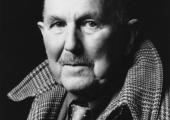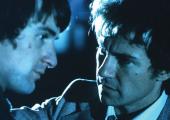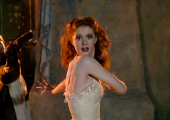20,000 Species of Bees review - a marvel of a debut



Since its release in 1999 David Fincher’s Fight Club has become something of a cult movie with young men who recite lines from the script like mantras. "This is your life, and it’s ending one minute at a time". It seems likely his new film, The Killer, will inspire the same devotion with the same demographic.

Margot (Emilia Jones; Coda) has made a terrible mistake. She’s landed up in bed with Robert (Nicholas Braun; cousin Greg in Succession) and realises the sex is going to be excruciatingly bad.
How to tell him that she’s changed her mind? Can she leave before it’s too late? Or is it easier to get it over with, otherwise he might turn nasty?
Maybe, as a last resort, she can make herself get turned on by his gratitude. “Look how much he wants us,” she tells her better self, who watches, cringing, from a corner of the room.

The first casualty of war is not truth, as the saying goes, but humanity – and not just in the sense of collateral damage. Media reporting turns victims into news items, along with satellite images of wrecked buildings or tanks crawling through a desert.
It happens every time. This morning, on BBC News, the Palestinian journalist Taghreed El-Khodary patiently explained what the Israeli blockade of Gaza means in terms of journalism. No reporter can reach the scene of the catastrophe to bear witness. “The human stories are missing,” she added.

Michael Powell fell in love with his celluloid mistress in 1921 when he was 16. It’s a love affair that he’s conducted for 65 years. At 81, he’s not stopped dreaming of getting behind the camera again. At Cannes this year he hinted at plans to make a silent horror film, but he’s reluctant to talk about it.

Ask someone to pick their favourite moment from a film by Martin Scorsese, something defining.

Nobody ever forgets The Red Shoes (1948) because it’s a movie that seems to change the way an audience experiences cinema. A story about a diverse group of individuals collaborating to make art, the film is itself a wonderful example of the process.

At the centre of Martin Scorsese’s Killers of the Flower Moon, closely adapted from the 2017 non-fiction book by the investigative journalist David Grann, is the true story of how the white former doughboy Ernest Burkhart (Leonardo DiCaprii) was inveigled into slowly poisoning his Native American wife Mollie (Lily Gladstone) for her share of oil wealth in 1920s Oklahoma.

Rock Hudson was built up as a silver screen archetype of heterosexual manhood, with his 6ft 5in frame and muscular physique, but his story has subsequently come to epitomise a Hollywood system built on illusions and delusions. Supposedly the kind of chiselled hunk every swooning female admirer would like to catch her before she hit the ground, Hudson’s private life was based around his coterie of gay friends and his gay agent, Henry Willson.

Garth Davis’s Foe is cast from that classic science fiction mould that uses a fantastical premise to explore the commonplace, yet profound aspects of our lives; in this case, the intricacies, dissatisfactions and anxieties of a marriage.
At the same time, it offers the sort of unsettling mystery and killer twists that have made the similarly inclined Black Mirror such a success.